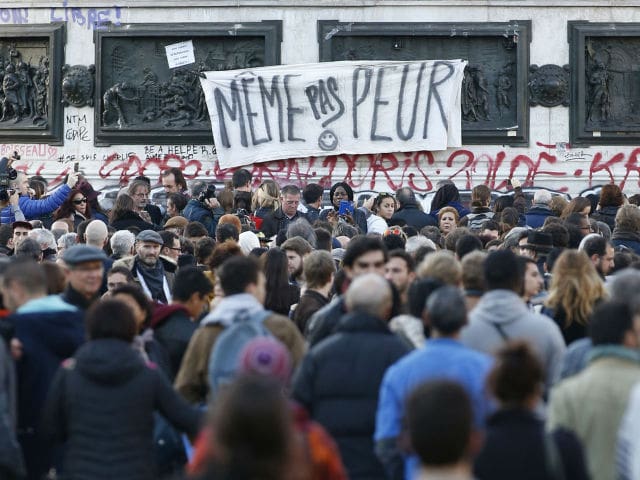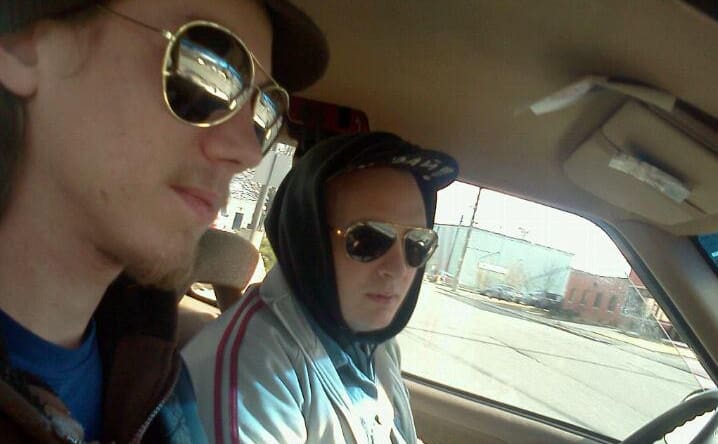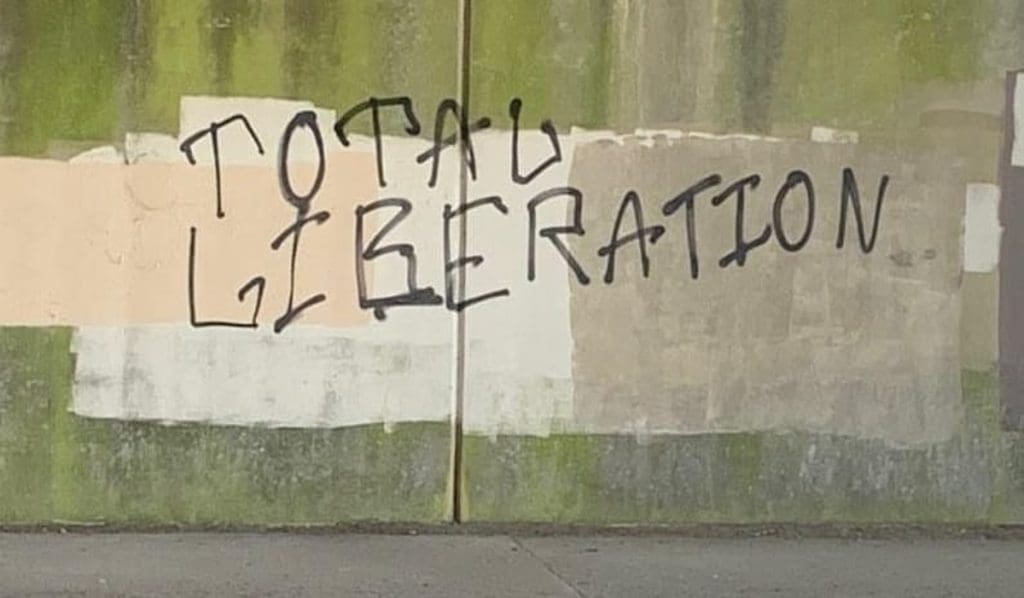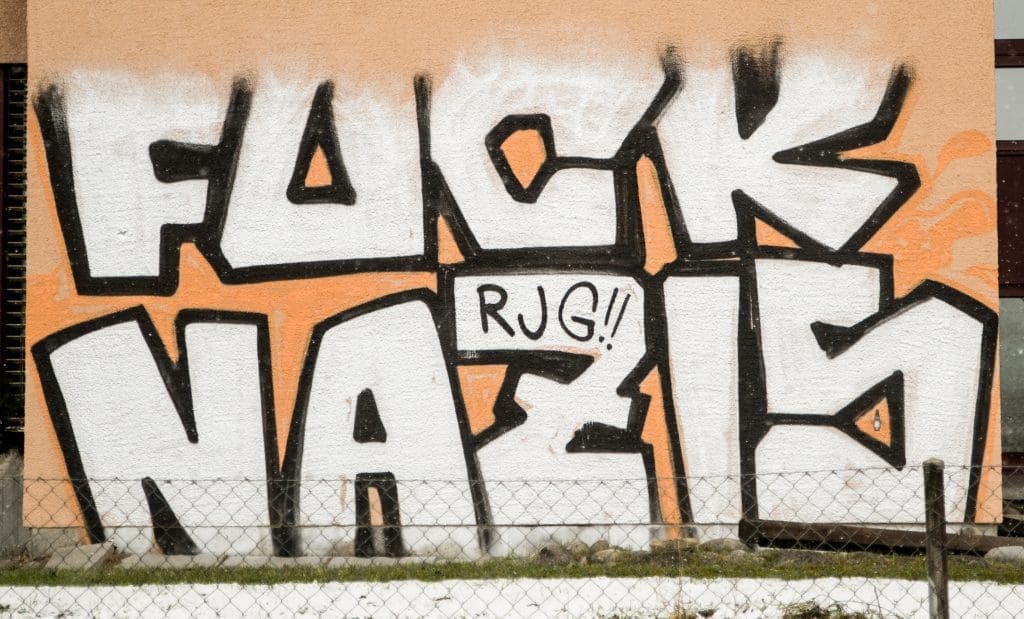Antinote: Looking back from the year 2023, it’s almost easy to forget how tumultuous the early twenty-teens were. 2016 seems to be the turning point burned into our global consciousness, when the whole world tipped irremediably into fascism and nihilistic nightmares. The chaos wrought by the counterrevolutions that crushed the Arab Spring uprisings, however—in 2012, 2013, 2014, 2015—was substantial. Forces for social justice and autonomy were in disarray worldwide as brutal counterrevolutions and reactionary consolidations proceeded everywhere following the revolutionary ruptures of 2011.
Then, as now, there were experienced freedom fighters shouting from the rooftops, making themselves hoarse trying to steer us off the path of destruction. There were massive popular movements of solidarity, even some that escaped the co-optation of capitalist social media and marketing platforms. Many of these have been chronicled in the pages of this website.
What follows is another belated translation of a crucial text we had republished only in its German version at the time, this one following the Paris attacks of November 2015. It is difficult to fully apprehend the intensity of that season of our lives on Earth, remembering as well the swelling border crisis and the world-changing drowning death of Aylan Kurdi in the Aegean sea just a couple of months prior, the escalating struggles and stochastic violence in Syria and Turkey…goodness gracious.
Let us transport you to a bygone time, when there was so much devastation but still some hope, still some fire in the bellies of those who resist, both in the periphery as well as in the metropoles. Maybe we can get some of that back.
Avoiding the traps set out for us, and changing the world because we have to
by Mauro Gasparini for the website of Ligue Communiste Révolutionnaire (Belgium)
19 November 2015 (original post in French)
translated to German by the Bewegung für den Sozialismus (Switzerland)
9 December 2015 (original post in German)
Note from BFS: With the attacks in Paris and the declaration of the highest-level “terror warning” in Belgium, our Belgian comrades have been confronted with a series of political and social consequences the full extent of which is difficult to grasp. In any case it is clear that the horrific murders in Paris, and the fear of further attacks, are being exploited by all the forces attempting to repress social resistance and advance racist policies. How must leftwing forces and social movements navigate the climate of fear, the language of war, and the militarization of public life? What positions must the left be developing?
Note from LCR: The LCR-SAP (League of Revolutionary Communists) of Belgium shares in the outrage and pain over the despicable attacks that were carried out on 13 November 2015 in Paris. We express our solidarity with the victims and their relatives. Amid this horror, we implore social movements and the anti-capitalist left not to fall into the traps that are now being laid: anything from the talk of “national unity” to the suggestion of a “break in the action” of social resistance to the redoubled intensification of security measures. It is more important than ever to ask ourselves the question of where this extreme violence comes from, and to understand that the only way out is through the unity of all oppressed classes and the advancement of the struggle for equality and against imperialist war, all those who govern, and the ruling classes.
The residents of western Europe rarely experience an outrage of the kind that has become a gruesome routine in certain other places ruled by authoritarian regimes and the daily grind of war—regimes and wars that, furthermore, have been influenced by our governments. After the Paris attacks, the deadliest in Europe since the Madrid attacks in 2004, solidarity with victims and their relatives was expressed worldwide. It is important to underscore here the especially strong solidarity statements from many parts of Syria—the country currently being tormented by the Assad regime, by Daesh (ISIS), and by various other forces invading from outside. One could see, for example, vigils being held in Douma, which is under siege by the government, as well as statements from Local Coordination Committees (LCCs), from activists in Kafranbel, and from dozens of brigades of the Free Syrian Army.
The rage and state of shock are legitimate, human reactions. Beyond that we must now attempt to understand what happened, and keep a close eye on the maneuvers of the ruling class that are now coming on the heels of the attacks. Social media has already been gripped by heated debate—over Facebook’s suggestion that people should tint their profile photos with the French tricolor, or over the unequal coverage of other catastrophes and their victims. These are legitimate questions. But in order to have a democratic and social response to this horror, we have to find out what led to the tragedy.
Your wars, our dead
Our comrades from the NPA [Nouveau Parti anticapitaliste] in France were accused of overstepping for having used the slogan “Vos guerres, nos morts” (in English: Your wars, our dead). It is true that this slogan leaves room for incorrect interpretation. But what does this expression mean? “Your wars” are the wars of Hollande, Putin, Assad, Erdoğan, Obama, etc., that we have slid into either voluntarily or by force. “Our dead” are the vast majority of these wars’ (above all Arab and Muslim) victims: ordinary working class people. That’s what this is about. It is with these victims of war that we form a grander “we,” and not (as Hollande and company would rather) with French “values” or “identity.”
Which values and identity are we talking about anyway? The “West,” not least France, has been waging imperialist war in the Middle East for decades—sometimes under the protectorate of the US and sometimes not. If the cruelty of Daesh is shocking, from Paris to Beirut, from Ankara and Raqqa to Egypt (where Daesh blew up a Russian airliner), they do not rank above the cruelty of US drones or Russian white phosphorus in terms of their blindness to and abhorrence of civilians—to say nothing of the brutality of Zionist repression in Palestine. To deny all of this suffering and speak only of Daesh only strengthens their propaganda.
Then there is official Islamophobia, which is perhaps a touch more prevalent in France than in other places. France has never known how to deal with the wounds of its colonial legacy—quite the opposite. Most media have forgotten that the largest massacre in France since 1945 was not this grim one on 13 November 2015, but rather the one on 17 October 1961. On that day, several hundred Algerian demonstrators fell victim to French state terror while protesting the racist curfews that had been imposed upon them.
Daesh: From Iraq to Syria—via Europe
These elements illuminate, in part, future problems and furthermore demonstrate the reason why France is an ideal target for the “strategy of tension” being deployed by Daesh. But that’s not all. In order to be able to understand these events better, it is essential to deconstruct the origins of Daesh itself.
Starting with the fracturing of al-Qaeda, Daesh is the product of several factors. On the one hand, there was the alliance among sectors of the of the Iraqi Ba’ath party’s security apparatus and the Sunni insurgents who fought against the American occupation—after a war whose goal was to “put an end to terrorism.” Then there were the radical Islamist activists who were freed from prison by the Syrian Assad regime in 2011 with the goal of fomenting a sectarian split in the powerful revolution confronting it. Assad wanted to create a new front against the burgeoning rebellion that would additionally strengthen his international propaganda narratives claiming that only his dictatorship could hold the country together. The third reason for Daesh’s success was the large number of aspiring jihadists who left their own countries to join the organization.
Daesh is not a fascist movement in the narrow sense, although there are similarities: above all the brutal nihilist violence and the glorification of death. They are the rotten fruit of the local fascioid regime and of neocolonialism. France, and the West in general, through the three factors mentioned above, helped create the conditions that led to the emergence of Daesh, and not only through their participation in and support of the war and occupation in Iraq. Let us remember that the timely imperialist interventions of Russia and its Iranian partners in support of Assad’s capitalist dictatorship, and the isolation of the Syrian people through an extreme lack of international solidarity, played a decisive role in the Syrian revolution’s degeneration into a horrible civil war. Ultimately, the social and political causes and conditions that feed Daesh also exist in our own societies, among others in France and Belgium.
Belgium is deeply affected by jihadism. Ordinarily it is not religion that brings a person to join an organization like Daesh and take steps towards action. Religion is a vector of radicalization, not its cause. Abdelhamid Abaaoud, one of the suspected organizers of the recent attacks, attended a well regarded high school, the Collège Saint-Pierre d’Uccle, and didn’t go to mosque. Many jihadists are rather in search of fame and renown—in particular on social media—as well as of their own identity. It is hardly surprising that ultra-radical groups succeed in motivating individuals when one sees how the shameful and racist contempt of the state repressive apparatus manifests itself every day, and how this humiliation mixes with structural impediments to political action. The young, post-colonial migrants from Muslim cultures, especially those who wear a headscarf, are—in school, on the way to work, in their free time—constantly beaten down by racist discrimination, harassed and repressed by police, and stigmatized by politicians and the media. Those caught within this inhumane system—in which they make up the majority of prisoners even though rates of criminality in their communities are no higher—are on a treadmill of hopelessness, and highly vulnerable to recruitment into insurgent circles.
Daesh’s home bases are in Syria and Iraq, with allies in Egypt, Libya, and Nigeria (Boko Haram). If they are recruiting outside of these areas, that means their potential for territorial growth is limited. Since they have almost no support among European Muslims—who pay the price for their atrocities—they will never achieve their great caliphate. This does not make them any less dangerous, nor change the fact that no current government responses are in any position to defeat them.
France: the militarized, racist, and authoritarian response
The reaction of French policymakers, particularly of Hollande and Valls, has been, as feared, an immense gift to Daesh. More than anything else, though, it is a feint. In order to broadcast the illusion of security, the state repressive apparatus is being significantly expanded. A state of emergency was declared on Friday. In his speech on the following Monday, 16 November 2015, Hollande used war-hungry rhetoric in defense of “the Idea of France,” the kind of rhetoric we had gotten less used to since the end of the Bush era. “The security pact outweighs the Euro-stability pact,” he confirmed—further evidence that both austerity policies as well as the upholding of European agreements are purely political choices. The national debt can keep growing, but only for war and repression. In this way, we see the same sorts of decisions here that George W. Bush made following 11 September 2001.
The security measures now in effect will only create more social insecurity, along with the unshakable feeling of walking down a street lined with heavily armed police and soldiers. The litany of newly implemented measures signals a crude, authoritarian turning point for the French president, whose gaze has incidentally also come to rest on the option of changing the constitution to make it easier for the executive to impose exceptional regulations. He is proposing extending the state of emergency by three months, something that hasn’t happened in decades. The state of emergency opens the possibility for the president to exercise sole executive authority (free of control via the courts) to ban all demonstrations, public and private gatherings, and events, as well as to order curfews, house arrests, home searches day or night, and the seizure of press and radio communications. The icing on the cake: violations can come with a punishment of up to two years’ imprisonment and a €3,750 fine.
Beyond all that, Hollande has announced the hiring of five thousand new police officers (who from now on can also carry weapons off-duty), 2,500 new court and correctional employees (including prison guards), and one thousand new border and customs officers. In addition, the police officers’ “right to self-defense” is being discussed anew. These measures serve the expansion of the repressive apparatus and police impunity.
And there is more: Hollande also announced racist immigration and citizenship measures: double citizens who were born in France can now lose their French citizenship, and the deportations of foreigners who “pose a threat” are to be accelerated.
In terms of international policy, Le Drian, the French minister of defense, received pledges of support from twenty-eight EU countries after invoking the Treaty of Lisbon and asking for military assistance. And here is another way that Hollande is thrusting France further into extremely destructive policies: he has explicitly confirmed that France will continue to prevent the toppling of Assad in Syria. “Our enemy is Daesh.” He is appealing to an international coalition, and in this regard wants to be in conversation with the US, Iran, the Gulf states, Turkey, and Russia. These countries are responsible for the Syrian catastrophe that has been such a boon to Daesh. Putin has constantly stated and confirmed that France is an ally of his, and finally admitted—at exactly the right moment, for him—that Daesh was responsible for blowing up the Russian airliner over Sinai two weeks ago.
For anyone who has followed the development of Front National in recent years, it doesn’t come as much surprise that the great party of France’s extreme right has celebrated this as a “positive change” in Hollande. “The president is taking some of our suggestions, which pleases me very much…” is what (for example) Marion Maréchal Le Pen had to say about it. Hollande is lurching radically rightward in both foreign and domestic policy to such an extent that even US Republicans can’t find anything left to gripe about. When Sarkozy proposed the preventative house arrest of eleven thousand “suspected extremists” through the use of electronic ankle bracelets, not only did Hollande not object, but he passed the proposal along to the French constitutional court. The acceptability of racist speech continues to advance, with the repulsive Eric Zemmour calling for [migrant-populated Brussels borough] Molenbeek to be “bombed” or, in another context, with Geoffroy Roux de Bézieux, the vice president of the French business association, instructing bosses to alert police to any signs of religious radicalization among their workers.
Islamophobic acts and threats against mosques and darker-skinned people are proliferating in France, just as they already had been after the attacks in January. Repression is in high gear, exemplified in the evictions of squats by special police units over the winter break; almost three hundred home searches since Friday (of which not even a dozen produced anything connectable with investigations into the attacks); or the search and ransacking of a mosque in Aubervilliers by the police—to say nothing of the intimidation of activists (among them NPA comrades in Millau).
The conclusion is clear: no lessons were drawn from the period following September 11, and the leaders of the great capitalist countries keep pouring gasoline on the fire. Hollande, the opportunist, hopes to gain in popularity through his role as wartime leader—he is forgetting, however, that people prefer the original to a facsimile. Le Pen is licking her chops. The only glimmer of hope: a group of rightwing extremists who tried to infiltrate a memorial for the victims of 13 November were driven out by hundreds of people shouting “dégagez, fascistes” (English: “Beat it, fascists”).
Responses in Belgium and the rest of the world
The war-hungry and racist upsurge in France and beyond has been impressive. The redoubled interventions in Syria are being presented as actions in solidarity with France. Muslims and migrants especially suffer the consequences of the attacks: mosques and refugee shelters are being attacked; almost half the states in the US, along with Poland, have announced they will stop accepting Syrian refugees; the Czech president unabashedly took part in an anti-Islam demonstration…
In Belgium too, the security frenzy has spun completely out of control. Politicians and press single out the country because it has allegedly harbored suspected terrorists. Boroughs like Molenbeek are being stigmatized, and hordes of journalists are flooding the place in search of sensational reporting. [Belgian interior minister] Jan Jambon (N-VA [center-right New Flemish Alliance]) has suggested he will personally take care of the problem and “clean up” Molenbeek (sic). The police and army have not waited for a prevention and repression plan, and have been racking up incidents of misconduct. This is how, for example, an entire family was arrested and had their apartment trashed – mistakenly!
Even the [liberal] MR (Mouvement Réformateur) immediately endorsed and reinforced Hollande’s discourse, alleging that Belgium is “at war” as well – a war that the [social democratic] Di Rupo government got us into in September 2014. There are calls for national unity here too, and regarding Molenbeek, the [social democratic] PS (Parti Socialiste) is not opposing the interior minister’s interventions, in order to uphold the “communal unity of parties.”
Underneath all of this, the extreme right is stirring: the Mouvement Nation wanted to demonstrate in Molenbeek; the event was forbidden by the [MR] mayor Françoise Schepmans. Rightwing extremists and Islamophobic groups like Pegida, however, are able to march in Antwerp with the support of [Flemish fascist] Vlaams Belang and permission from [N-VA mayor] Bart De Wever.
A few days ago, De Wever tried to dissolve the city council and invest its entire budget in state security. Ruedi Vervoort (PS) announced that in 2016 there would be “never before seen financial resources for ‘policing zones’” and municipal security. [Laurette] Onkelinx (PS) begged for a strengthening of the European security apparatus. Georges Dallemagne, member of the Cdh (Centre démocrate humaniste) and recently returned from a courtesy visit to Assad, proposed increasing surveillance of social media. The government has now resolved to increase the 2016 budget for security and counterterrorism to four hundred million euros and to post 520 soldiers on the streets. Beyond that, the criminal code and the constitution are to be revised in order to tighten security (new methods of search and seizure, new police protections, new databases and data checks…); young people coming back from Syria will be held in detention; and legislation will be adjusted to conform to emergency regulations so that these special measures can be applied.
On the international level, the Belgian government has decided to enhance the military intervention in Syria with an escort for the aircraft carrier Charles de Gaulle and by alternating airstrikes with the Netherlands. Only Ecolo (Écologistes confédérés pour l’organisation de luttes originales) is emphasizing the importance of freeing society from dependence on fossil fuels by no longer advancing the “War on Terror.” The PTB (Parti du travail de Belgique), for their part, is calling for countering Daesh by cutting ties with Saudi Arabia, interrupting funds and arms deliveries, and uniting all forces fighting ISIS—including Assad.
Their “solutions”: state of exception, national unity, war, racism…and social peace
All of this is, of course, not without impacts on social movements here as well as in France. In our neighboring country, strikes have already been canceled or postponed (Air France workers, hospital workers, air traffic controllers, teachers, actuaries), as has the general strike in Mayotte. The international summit for a European Plan B, convened by the “Parti de gauche” and with participants including “Laiki Enotita” (Greece), was canceled as a direct result of the national emergency and the administrative closure of the host university. A power confrontation is also brewing between the climate justice movement and the French government over COP21: all demonstrations in connection with the climate conference were banned, even though the coalition of social movements had declared its intention to stick to their plan of action. One might remember that here in Belgium the enormously dangerous recommissioning of the cracked nuclear power plants Doel 2 and Tihange 3 was approved, and that climate change will have countless victims (there have already been thousands).
In Belgium, the authorities canceled the soccer game against Spain, as well as the “Saint-V.,” a students’ folklore festival in Brussels. The PTB voluntarily postponed their second “ProtestParade,” which had been planned for last Sunday, to an unspecified later date. And just in case the labor union FGTB were tempted to continue their strike in Hainaut, all demonstrations and public events there were summarily canceled. All this with the reassurance that “radicalism can only be confronted with fear and solidarity” (sic).
These reactions are extremely problematic. The hobbling and neutralization of politics in favor of repression is exactly what Daesh is striving for. As one element of the counterrevolutions in the Middle East, Daesh is depending on exactly this worldwide reaction. It is more vitally important than ever to do politics, to mobilize, to get hold of ourselves and not surrender the entire field to capitalist states.
At the same time, we must be very careful with false information and conspiracy theories that—as always in such situations—are circulating on social media. Manipulation through propaganda based on the outrage over Daesh is already working. Assad can massacre the same number of people killed in the Paris attacks every single day, and even gas fifteen hundred Syrians in one go, and still preserve a pristine image. He remains spotless. He maintains a “civilized” appearance, while he is responsible for ninety-five percent of civilian deaths in Syria and represents the central motivating reason for the mass exodus of people from the country. We must beware of the false messaging of Daesh, who use fake Syrian passports in order to break the solidarity with refugees that manifested itself this summer in so many countries of Europe—not least Belgium.
The spotlights and fighter jets directed at Daesh create the myth that they are the only “real enemy of the West.” Assad makes exquisite use of this, as do the rightwing extremists in Europe who support him the most fervently. Even worse, not a single one of the responses that European governments have put on the table offers any solutions to the Sunni population (eighty percent of the Syrian population).
So, what to do? Keep building the social, democratic, ecological, antiracist, and antiwar struggle.
We said it already in September 2014, when Belgium decided to join in the war against Daesh in Iraq:
“It is the responsibility of forces on the left and of social movements to contribute something to making the solidarity of all people against barbarism real. The war against Daesh and al-Nusra has already increased the popularity of these forces in the region. It has created a suffocating climate of Islamophobic and racist paranoia across the entire world that is very useful to the extreme right and the ruling classes in Europe during this economic crisis. In order to escape this death spiral, it is the role of the radical and anti-imperialist left to redouble our support for democratic, leftwing forces in the region, for the self-organized structures in Syria which, in spite of counterrevolutionary developments, do still exist. We must demand that imperialists, whether they are American or Russian, withdraw from all their bases in the region. We must do everything we can to achieve a just, enduring peace in Palestine. Finally, we must demand that the democratic forces fighting Daesh in the region get access to all means and materials necessary for their defense and that they may deploy them effectively against the repressive regimes of the region.”
On the international stage, it is necessary to struggle against all the dictatorships of the region, not just the one in Syria—such as Sisi’s in Egypt, and also the authoritarian and brutal Erdoğan regime in Turkey. Not to overlook the Gulf states and the capitalist theocracy in Iran.
Beyond that, we must also dedicate ourselves to the struggle at home against discrimination at work, in housing, in schools, etc., as well as support all initiatives for peace, against the reactionary forces of the extreme right, and for solidarity—such as those who stood up in Molenbeek last Wednesday, with great success. It is also essential that social movements themselves determine the social and political agenda. This is only possible through a break with liberal-repressive-imperialist politics in favor of an anti-capitalist alternative with social and environmental emergency measures that additionally make it possible to tackle the problem of hopelessness around the housing and unemployment crises. We underline the grave peril of a situation where union leadership marches down the same dead end and persists in a strategy of appeasement and labor peace. Together with the repressive assault of the bourgeoisie, and with the assistance of Daesh, this orientation risks bringing the labor movement to the point of ruin and thus tipping the balance of all democratic, social, and political matters.
As the British activist and author Kevin Ovenden has stressed, the struggles against war and against racism are essential for two reasons: only they are in a position to forestall our collective descent into hell, and only they can create a world that gives us back our trust in our collective abilities. Governments and the protectors of capitalist order will retort that we are utopians, if not traitors or Illuminati, incompetent to counter terrorism. But since 11 September 2001 it is they who have failed, and their current solutions are nothing other than the perpetuation of their previous defeats. The immediate measures that we demand are only partial solutions to the problem and in a certain sense contradictory: we must stop imperialist barbarity, neoliberal austerity, and the monsters that they nourish.
The ultimate solution to these afflictions demands a global and radical course correction, on the national as well as international levels. The military and surveillance industries experienced market collapse on Monday; capitalists are being tempted by new prospects. The same thing is true here of the demand for private security forces. Capitalism and its imperialisms in crisis are nothing other than nihilistic death cults. We are living in an increasingly violent and dangerous arena as they flail and expire. We must bring an end to them before they bring us down with them. The critical choice that we will have to make in the coming century is between an ecosocialist world or the near extinction of humanity.
Translated by Antidote
Featured image source: Bewegung für den Sozialismus





